Do you want to tune up the energy levels of your heart and your muscles? Research shows that this is what you can accomplish with a supplement called coenzyme Q10, or CoQ10 for short.
Our research team took an in-depth look at the best CoQ10 supplements on the market, plus reviewed the latest science on the benefits and side effects of CoQ10 supplementation. Read on for more:
Our advisory panel and our research team rank the best health products and supplements based on performance, label accuracy, and the efficacy of the ingredients in the products.
- Best Overall: Live Conscious CoQWell
- Best for skin health: Essential Elements CoQ10
- Best for men: CoQ10 Complex + by Nuzena
- Best for heart health: Transparent Labs Raw Series CoQ10
- Qunol Ultra CoQ10
Research
Rankings
Last updated: October 24, 2022
CoQ10 supplements considered: 25
Hours of research: 43
Experts reviewed: 11
Scientific papers referenced: 33
| IMAGE | PRODUCT | |
|---|---|---|
Best Overall  | 1. Live Conscious CoQWell
| View Latest Price → |
Best for skin health 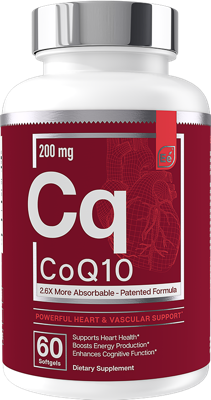 | 2. Essential Elements CoQ10
| View Latest Price → |
Best for men 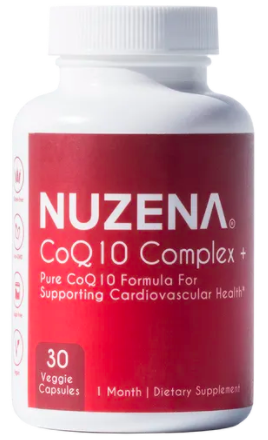 | 3. CoQ10 Complex + by Nuzena
| View Latest Price → |
Best for heart health 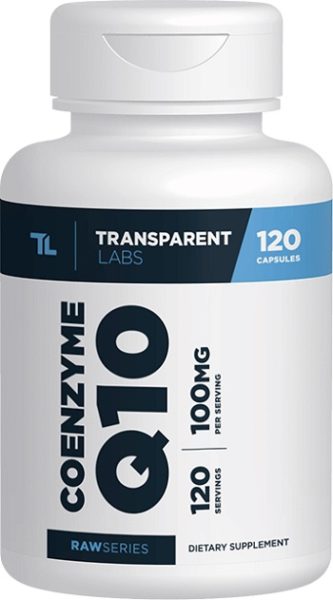 | 4. Transparent Labs Raw Series CoQ10
| View Latest Price → |
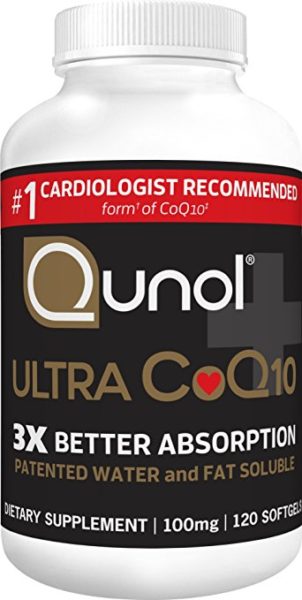 | 5. Qunol Ultra CoQ10
| View on Amazon → |
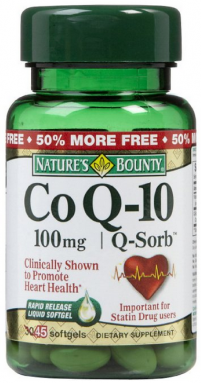 | 6. Nature’s Bounty Extra Strength CoQ10
| View on Amazon → |
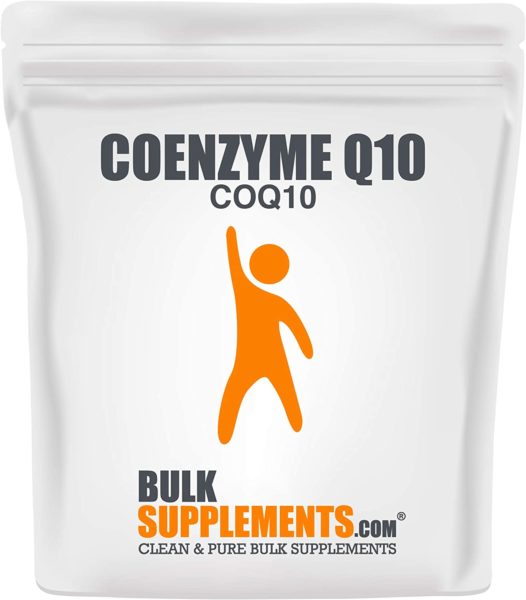 | 7. Bulk Supplements Pure Coenzyme Q10
| View on Amazon → |
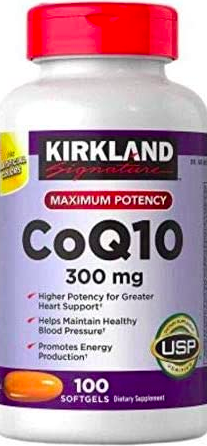 | 8. Kirkland Signature CoQ10
| View on Amazon → |
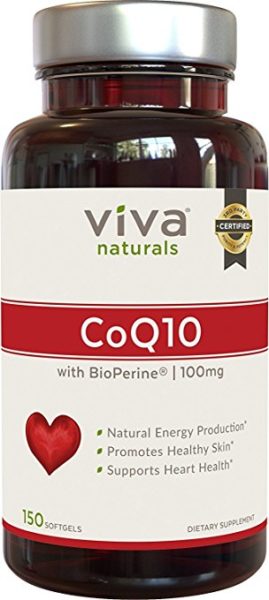 | 9. Viva Naturals CoQ10
| View on Amazon → |
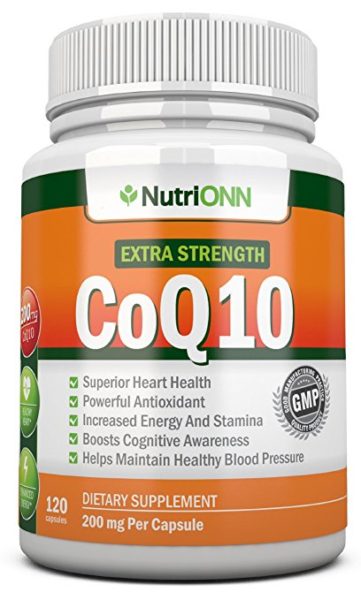 | 10. NutriONN Extra Strength CoQ10
| View on Amazon → |
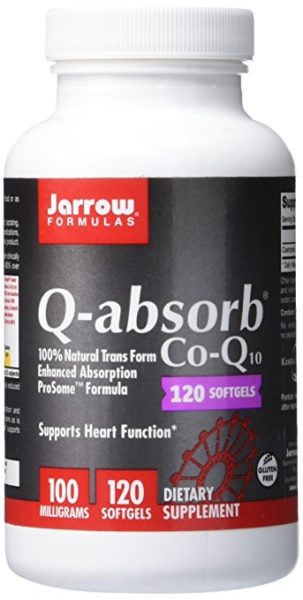 | 11. Jarrow Formulas Q-absorb CoQ10
| View on Amazon → |
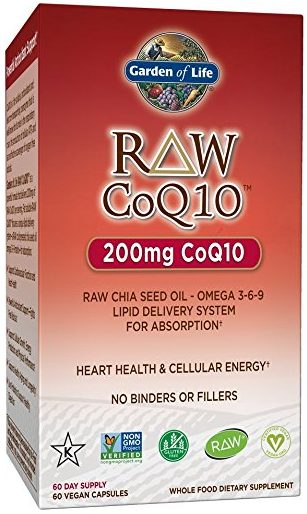 | 12. Garden of Life Raw Coq10
| View on Amazon → |
1. Live Conscious CoQWell
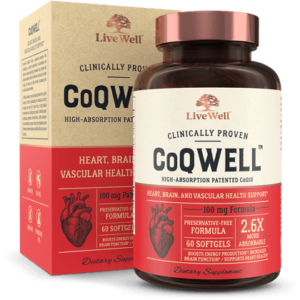
For those who’re serious about taking the most potent CoQ10, Live Conscious CoQ10 is the best you can get.
No other CoQ10 can compete with its 240 mg dosage of ultra-pure CoQ10.
“Our Advanced CoQ10 ensures that you receive an equally supportive boost to the various areas of your body that are the most critical—from heart, brain, and immune system health—to maintaining and regulating blood pressure and cholesterol levels.”
From heart health to providing your body more energy and focus, the Live Conscious CoQ10 is one of the better daily habits you can have in the supplement space.
Live Conscious CoQ10 also has no additives. All natural, no artificial sweeteners, no artificial coloring, no artificial preservatives and 100% GMO-free.
This is important. When you’re taking a critical antioxidant as a daily supplement, the last thing you want is “added stuff” to mess with your fatigue, oxidation, blood pressure and sperm quality.
Made in the USA and in an FDA-approved facility.
BodyNutrition‘s all-around CoQ10 supplement winner of 2023.
2. Essential Elements CoQ10

CoQ10 by Essential elements contains CoQsol, a patented formula that provides a synergistic blend of powerful antioxidants including vitamin E and natural beta-carotene to improve cholesterol levels and help boost the immune system. Suspended in rice bran oil, this CoQ10 formula is absorbed up to 2.6 times better through the lymphatic system.
It is also completely free of GMOs, gluten, dairy and preservatives. Third party lab tested to ensure purity, you can ensure every serving is exactly what you’d expect.
3. CoQ10 Complex + by Nuzena

Nuzena is a brand-new supplement company known for their no-nonsense formulas.
CoQ10 Complex + contains 200 mg of Coenzyme Q-10 Ubiquinone which definitely makes it one of the more potent formulas we’ve seen.
Nuzena’s CoQ10 Complex + formula supports heart health, helps to regulate blood pressure, and can even help to prevent and treat migraines.
Easily a top 3 option and also one of the cheapest options on this list.
4. Transparent Labs Raw Series CoQ10

Transparent Labs produces an effective and pure CoQ10 designed for reliable long-term use at 100 mg per serving.
They claim that purity and affordability are absolutely necessary for a daily-use lifestyle supplement, and one should never be compromised for the other.
This perspective motivated Transparent Labs to master a formula that delivers pure CoQ10 without fillers or allergens, consistently prepared across batches in their state-of-the-art facility.
Key advantages to this specific CoQ10 are: cartilage-free veggie capsules (no gelatin) and absolutely no soybean oil. These unique refinements provide extra piece of mind when taking CoQ10 for daily pro-health use.
Transparent Labs CoQ10 is micro-batched for peak freshness and can be purchased directly from their website for a middle-man free affordable price.
5. Qunol Ultra CoQ10
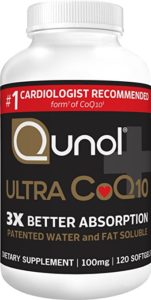
Qunol’s CoQ10 provides 100 mg of CoQ10 alongside 150 IUs of vitamin E. The purity is solid, with each capsule containing a 5.7% excess of CoQ10 than what is reported on the label.
Like many other CoQ10 supplements, it contains soy, so if you have an allergy, be aware of that.
6. Nature’s Bounty Extra Strength CoQ10
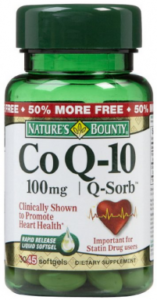
Nature’s Bounty’s “extra strength” formulation contains 200 mg of coenzyme Q10 per capsule, so if you are looking for a higher dose (especially if you’d rather not split it into two separate capsules), it’s a decent choice.
7. Bulk Supplements Pure Coenzyme Q10

Bulk Supplements ‘ CoQ10 formula is a niche pick: it’s 100% pure CoQ10 powder, in the ubiquinone form.
It’s the perfect product for people mixing up custom supplements, but unless you have a micro-scale for accurate dosing, you’ll want a capsule-based supplement instead.
8. Kirkland Signature CoQ10

Kirkland Signature makes capsules with 300 mg of Coenzyme Q10, and the purity is pretty solid.
The only downsides? It uses soybean oil as a solvent, and relies on gelatin capsules with a few more additives than we’d like to see.
9. NutriONN Extra Strength CoQ10
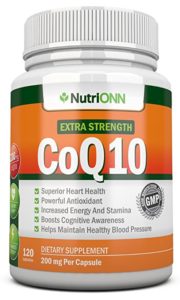
NutriONN CoQ10 is potent and simple. Each capsule contains 200 mg of CoQ10; there are only three other ingredients—gelatin, rice flour, and magnesium stearate, a binder which facilitates the release of CoQ10 from the capsule. A good option, if a bit bloated with fillers.
10. Jarrow Formulas Q-Absorb CoQ10
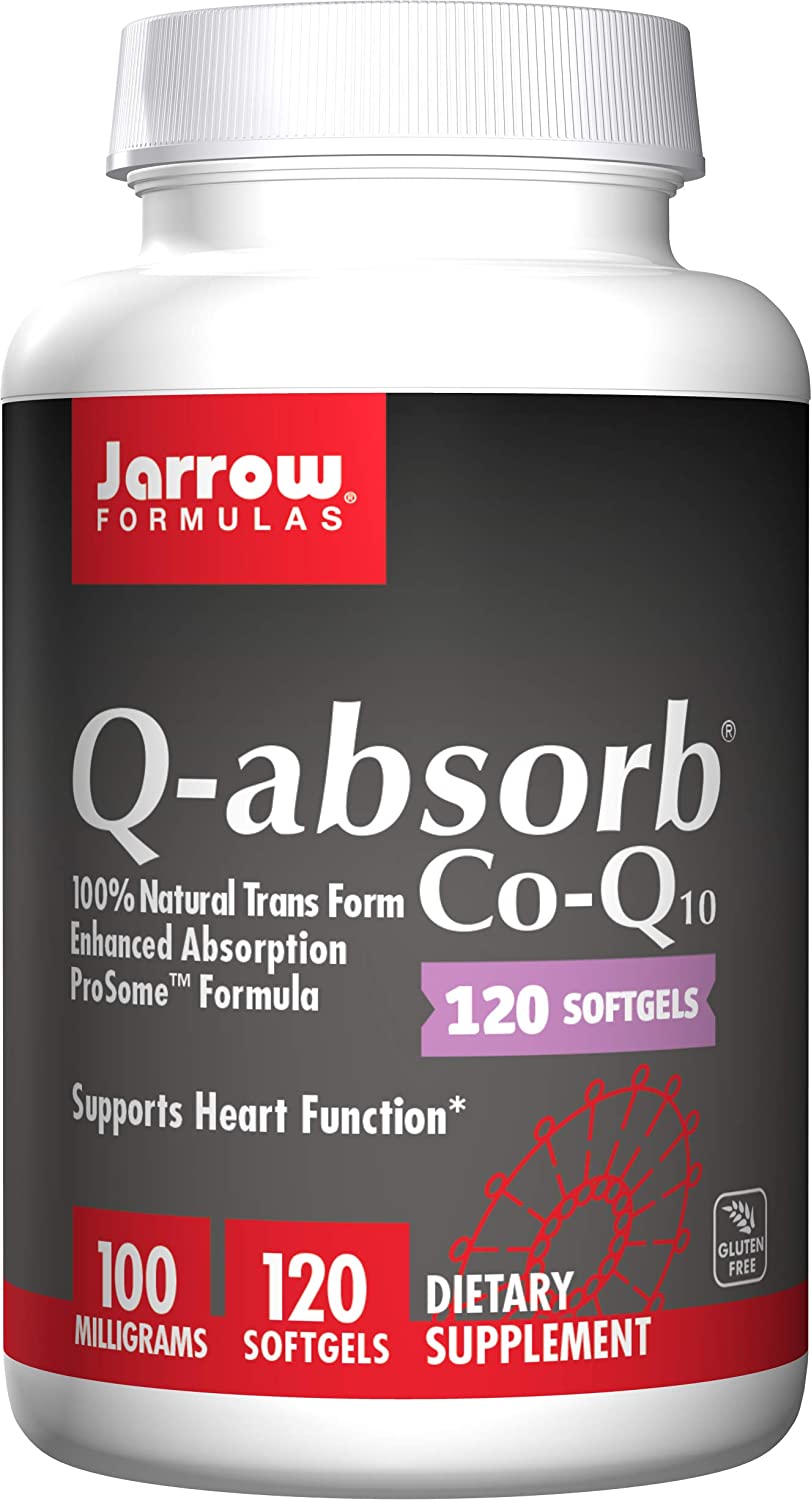
Jarrow Formulas provides a middle-of-the-road 100 mg dosage of CoQ10. Its independent lab-certified purity is pretty good, and its lack of soy partly makes up for its middling dosage.
Category winners
Best CoQ10 overall: Live Conscious CoQ10
We chose Live Conscious CoQ10 as our best overall pick because of its potent dose (a hefty 240 mg) and its lack of any preservatives, fillers, and binders. For an all-purpose CoQ10 supplement, there’s no doubt that Live Conscious should be your first choice.
Best CoQ10 for skin health: Essential Elements CoQ10
CoQ10’s skin benefits mostly revolve around its capacity to act as an antioxidant. For this reason, Essential Elements CoQ10 was an easy pick: Since Essential Elements includes CoQ10 alongside other potent antioxidants like vitamin A and vitamin E, it stands the best chance of improving your skin quality.
Best CoQ10 for heart health: Transparent Labs CoQ10
Most clinical research on CoQ10 for heart health has used ultra-pure doses of 150 to 200 mg, sometimes split into two doses. That’s what we aimed for with our heart-heart focused category winner: Transparent Labs contains exactly 100 mg of pure CoQ10 per capsule, putting it right in line with the latest scientific research on CoQ10 for heart health.
Best CoQ10 for men: CoQ10 Complex + by Nuzena
Men looking to take CoQ10 for more energy and better performance want something that’s on the high side when it comes to dosage, so CoQ10 Complex + by Nuzena is a natural choice at 200 mg. It’s an excellent choice, especially for older men whose natural CoQ10 levels have started to drop.
Best CoQ10 for migraines and headaches: Transparent Labs CoQ10
People using CoQ10 for migraines and headaches should be especially careful to avoid supplements with unnecessary ingredients. Transparent Labs CoQ10 takes the crown here thanks to their widely-praised approach to simple and pure supplement design.
Best CoQ10 for having more energy: Live Conscious CoQ10
Boosting your energy levels with CoQ10 calls for a solid dosage, which is why Live Conscious comes out on top for this category. At 240 mg per serving, you’ll get optimal results from this powerful dose of CoQ10.
Who should buy CoQ10?
CoQ10 is a supplement whose primary function is to increase your ability to produce cellular energy. It is useful for two distinct applications:
People who want to boost or preserve cognitive function. During cognitive tasks, there is a similar need for cellular energy, but instead of in your muscles, the energy production happens in your brain.
CoQ10 is popular nootropic agent among people looking to increase their cognitive function.
If you are a student or you have an intensive, project-oriented job, CoQ10 could be a great way to achieve better mitochondrial function in your brain and provide you with the mental energy you need to finish out your work productively.
It’s also been studied as a way to prevent or slow the progression of cognitive decline among elderly adults, with the goal of supporting energy production in the brain, and to prevent the deterioration of brain cells over time.
People who want to improve their athletic performance. As a performance enhancer, CoQ10 is best used in intensive workouts like high-intensity interval sessions and intense aerobic workouts.
It functions well as a pre-workout supplement, and is a common ingredient in this category of supplement.
In exercise, the need for cellular energy is obvious: better energy production means you can run faster and lift more.
CoQ10 is equally well-studied in competitive athletes and in people with serious health conditions, like chronic heart failure.
How we ranked
For our CoQ10 rankings, we focused on purity, dosage, and mechanism of delivery, using the following criteria:
Independently verified purity. We used independent lab testing to identify supplements with accurate dosing. This propelled quality products like Qunol, Live Conscious, and Nuzena up in our rankings.
Effective dosage. Most research on CoQ10 uses doses of 150-250 mg, sometimes split into a morning and evening dose. We prioritized products that made this dosing protocol easy. Supplements with dosages too high or too low got demoted or dropped completely.
Simple capsules. To broaden the accessibility of our top-rated products, we had a preference for vegetable-based cellulose capsules over gelatin.
We also rewarded products with few or no binders and fillers in their capsule.
Capsules over powders. Powder-based products posed a challenge: they’re ultra-pure, but much more difficult to use for most people.
The convenience of capsules won out for almost all of our products, save for Bulk Supplements, which is our recommendation for do-it-yourselfers blending their own custom supplements.
FAQ
Q: What is the recommended dosage of CoQ10?
The bulk of scientific research studies use doses of 150 to 200 milligrams of coenzyme Q10, suggesting that the optimal dose for both cognitive and physical function lies within this range.
Q: What are the side effects of CoQ10?
According to the Mayo clinic, CoQ10 is safe to take, even in fairly high dosages—up to 3,000 mg per day (1).
Most research finds no side effects for CoQ10. A research paper by scientists in Denmark found no known negative side effects of taking CoQ10 in doses of up to 200 mg per day for up to a year (2).
A few sources report that mild, transient side effects like insomnia or rashes might occur when you start taking CoQ10. The Mayo Clinic reports that some vague, mild, and transient side effects like fatigue, insomnia, or rashes might occur, but these do not appear to be serious (3).
Most clinical research uses CoQ10 alone, not paired with piperine. Research conducted by industry-sponsored scientists claims that adding a special proprietary black pepper extract to a CoQ10 supplement boosts absorption, and some of the supplements on the market include this “BioPerine” extract (4).
So far, though, clinical trials on using CoQ10 for the treatment of disease have not employed CoQ10 supplements that include BioPerene, so it’s not necessary.
Q: What is CoQ10 good for?
A: CoQ10 boosts your mitochondrial function. Its practical uses range from enhancing exercise performance to improving cognitive function, and it can also be useful to preserve muscle function when taking medications with negative muscular side effects, such as statins.
Q: What does CoQ10 do?
A: At the cellular level, CoQ10 is deeply involved in the production of aerobic energy. The vast majority of the energy your body uses comes from aerobic metabolism, so it plays a vital role in both physical and mental tasks.
In terms of its actual health effects, CoQ10 boosts performance in high intensity workouts that rely on high levels of aerobic power output.
It may also be useful for increasing cognitive function, and for improving cardiovascular function in people who are taking cholesterol medication or who have chronic heart conditions.
Q: What is CoQ10 made from?
A: Unlike many other supplements we review, CoQ10 is naturally-occurring, but in supplemental form, it is usually directly synthesized from simpler organic compounds.
Your body uses a series of chain reactions that build CoQ10 out of amino acids and other smaller building blocks; while the steps followed by chemists who make CoQ10 supplements is not identical, the principle is the same.
Q: How does CoQ10 work?
A: CoQ10 boosts your body’s energy production by increasing the concentration of this critical coenzyme in the tissues in your body that need it the most, such as your heart and your muscles.
One study found that a CoQ10 supplement was able to prevent the decrease in CoQ10 levels seen in the blood after taking medication for lowering cholesterol levels, while another showed that taking CoQ10 could increase the concentration of mitochondria in the brain—all things that we would expect based on its biological function (5, 6).
Q: Should CoQ10 be used if you are on statins?
A: Taking statins reliably decreases CoQ10 levels, by as much as 40% (7,8). Muscle pain and muscle damage are common side effects of taking statins, and some researchers believe that the decrease in CoQ10 could be to blame. To this end, several studies have investigated the effects of CoQ10 supplementation on the effects of statins, and the evidence is promising.
You should always talk to your doctor about your supplementation routine if you are taking prescription medication—this is especially important for people with heart conditions, because other medication like warfarin has negative interactions with CoQ10—but taking a CoQ10 supplement should definitely be something you consider if you are taking statins.
Q: Does CoQ10 affect fertility?
A: While most headlines on CoQ10 trumpet its physical and cognitive performance benefits, or its potential for people with heart conditions, a less-publicized area of research has raised the possibility that CoQ10 could help improve fertility both for men and for women.
One study found that infertile men who took 300 mg of CoQ10 per day had statistically significant improvements in their sperm quality (9).
Likewise, other research found that CoQ10 supplementation could boost ovary function and extend the longevity of high-quality eggs in women (10).
Though the potential for CoQ10 as a fertility treatment is underexplored, many avenues of research show that it has promise.
Q: How long does it take for CoQ10 to work?
A: In terms of an acute dose, it will take six hours for your body to start feeling the effects of CoQ10 due to its slow absorption rate.
In terms of achieving the systemic effects of CoQ10 supplementation, the shortest time period reported in the scientific literature is about two weeks, from research on exercise performance (11). Other research has used substantially longer interventions, up to six months in length or longer (some studies last several years).
When exactly the benefits kick in is unclear, but you should expect it to take at least two weeks, and possibly longer, to see significant changes.
Related articles
Recap
Supplementing your diet with coenzyme Q10 is one way you can boost your body’s energy production and stave off the loss of vigor that comes with age. It may offer protective effects against heart disease and degenerative brain disorders.
On top of that, it might be able to boost your physical performance by supercharging the energy production of your muscles—results have been good in research on sedentary people, but it’s unknown whether someone who is physically fit will get the same benefits.
If you would like to use CoQ10 as an adjunctive treatment for a medical condition, make sure you talk with your doctor first. CoQ10 may interact with certain medications, including warfarin, a blood thinner.
In most cases, though, CoQ10 will give you a good shot at feeling younger, healthier, and more energetic.
For BodyNutrition‘s #1 CoQ10 recommendation, click here.